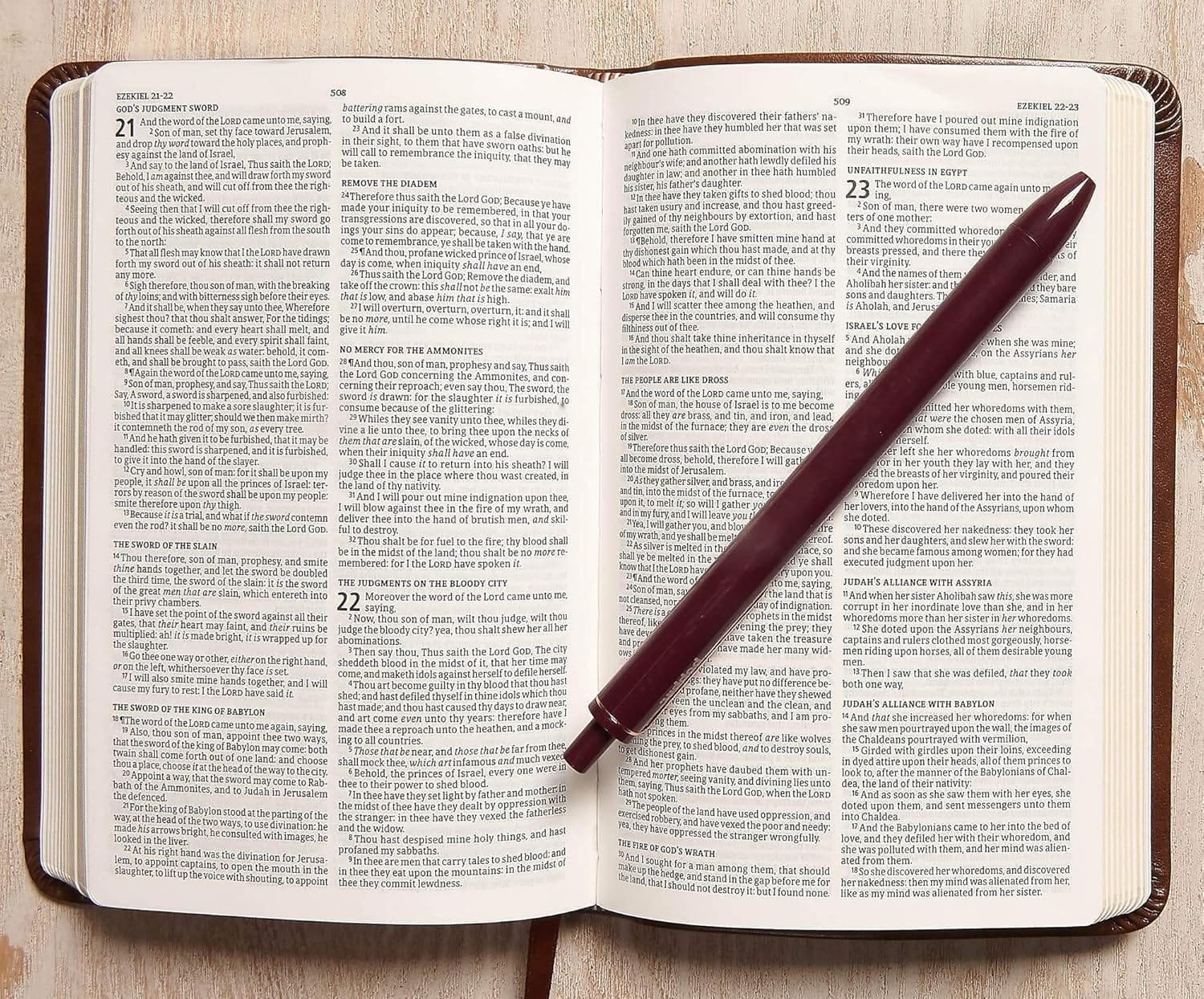

1. The Holy Bible
Excerpt:
"In the beginning was the Word, and the Word was with God, and the Word was God." (John 1:1)
Why it’s monumental:
The Bible is the foundational text of Christianity, containing the sacred canon of both the Old and New Testaments. It is at once history, poetry, prophecy, law, and gospel—a living testament of divine-human encounter that has formed the moral and spiritual fabric of billions.

KJV Compact Bible
$9.64—The KJV Compact Bible, Value Edition is economically priced and features a convenient, compact design that slips easily into a pocket, backpack, or purse. This Bible makes the perfect gift for a person “on the go” who wants to keep the Word of God close, accessible, and convenient to read at all times.
2. Confessions – St. Augustine
Excerpt:
"You have made us for yourself, O Lord, and our heart is restless until it rests in you."
Why it’s monumental:
A soul laid bare in dialogue with God, Confessions is the first great spiritual autobiography in Western literature. St. Augustine fuses introspection, philosophy, and theology in a confessional prayer that echoes across centuries.
3. Summa Theologica – Thomas Aquinas
Excerpt:
"Grace does not destroy nature but perfects it."
Why it’s monumental:
A towering synthesis of faith and reason, Aquinas' Summa systematically explores theology with philosophical rigor. It remains the cornerstone of Catholic theology and a blueprint for understanding the divine order of things.
4. The Imitation of Christ – Thomas à Kempis
Excerpt:
"All men desire peace, but very few desire those things that make for peace."
Why it’s monumental:
Second only to the Bible in historical popularity, this quiet devotional classic urges the reader toward humility, obedience, and spiritual interiority. Its influence runs deep in monastic, mystical, and lay Christian life.
5. City of God – St. Augustine
Excerpt:
"Two cities have been formed by two loves: the earthly by love of self, even to the contempt of God; the heavenly by the love of God, even to the contempt of self."
Why it’s monumental:
Written in response to Rome's fall, this grand vision distinguishes the civitas terrena from the civitas Dei, offering a theology of history and destiny that shaped the medieval worldview and Western civilization.
6. The Pilgrim’s Progress – John Bunyan
Excerpt:
"This hill, though high, I covet to ascend;
The difficulty will not me offend."
Why it’s monumental:
An allegory for the Christian life, Bunyan’s epic has become the definitive Protestant spiritual journey. Its vivid characters—Christian, Faithful, Evangelist—symbolize inner struggles and moral truths that resonate far beyond its Puritan roots.
7. The Brothers Karamazov – Fyodor Dostoevsky
Excerpt:
"If God does not exist, everything is permitted."
Why it’s monumental:
More than a novel, this philosophical epic explores the problem of evil, free will, and salvation. Through the Karamazov brothers, Dostoevsky plunges into the deepest questions of faith, doubt, and moral responsibility.
8. On the Incarnation – St. Athanasius
Excerpt:
"He became what we are so that He might make us what He is."
Why it’s monumental:
This early patristic text is a lucid and powerful defense of the central Christian mystery—God made flesh. Athanasius defends the divinity of Christ with clarity and pastoral urgency that remains essential today.
9. The Divine Comedy – Dante Alighieri
Excerpt:
"In His will is our peace." (Paradiso)
Why it’s monumental:
Dante’s journey through Hell, Purgatory, and Paradise is not merely a literary triumph—it is a cosmic pilgrimage. Infused with Thomistic theology, it visualizes the architecture of salvation and the moral order of the universe.
10. Mere Christianity – C.S. Lewis
Excerpt:
"I believe in Christianity as I believe that the sun has risen—not only because I see it, but because by it I see everything else."
Why it’s monumental:
Adapted from wartime radio talks, Lewis’ lucid defense of core Christian belief transcends denomination. With clarity and reason, it appeals to intellect and soul alike, making the case for Christian orthodoxy in a skeptical age.
